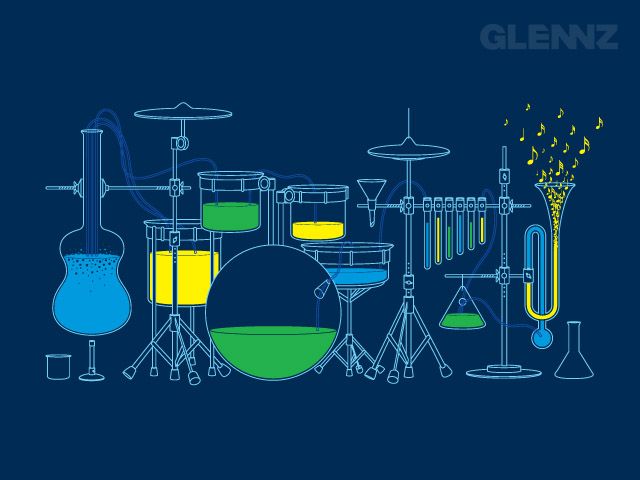
Music And Chemistry
Maybe you could think it’s a stretch, to believe that music and chemistry can be related to eachother. We know mathematics and music are very intertwined in many ways but how could it work with the science of the elements?
In 1865 there was a proposition made by John Newlands which consisted in dividing 62 known elements into eight groups based on similar properties and then went on to publish “On the Law of Octaves”. As the inert gases were not known at this time, it is easy, to see that every eighth element would have been in the same family up until the transition metals.
This problem with transition metals made the findings denied by the Society of Chemists but he later made his way into recognition with the Davy Medal in 1887. However, there is in fact a connection between piano scales and the transition metals that may be useful in teaching students the periodic table which can be fun and a nice change of pace.

Chemistry and Music have many connections in both practice and practitioners. Both have layered complexities underpinned by harmonics and mathematical roots. Where music has its octave, chemistry has its octet. Famous in both fields
David Devraj Kumar
It’s interesting to see these connections and not only find them to be fun facts but also serve useful purpuses.
Skills That Chemistry and Music Have In Common
According to an article by the cen.acs.org, there are a few things that music and chemistry have in common which can determine a sort of familiar ground between the two.
This connections are a good teaching tool, and it works both ways, although of course it may be a bit more fun for the average student to learn chemistry through music.
Patterns
In music the use of scales and repeating certain rythms and melodies is essential, this requires a refined abillity to recognize patterns and knowing how organize every note.
In chemistry, patterns need to be recognized to a very specific degree, that’s why there is a periodic table and instruments that allow this kind of presicion.
Motor Skills
Every instrument requieres a different kind of skill, but every single one also requires a good amount of dedication and time in order to master it and experience its full potential.
Chemistry has its own set of instruments, though not in the musical sense, they pretty much require the same mindset. Every tool in a lab has a purpose and a different way to use it.
Timing/Rhythm
Timing is also essential to music and very much in line with mathematics, that’s why it’s not strange to find similarities with chemistry as there is a very important focus in time, quantities and learning when is the right moment to do a specific action.
Mistakes and Trying Again
While this is obviously a very general thing to say, it has a lot more value when you put all the other things together. It’s easier to see the whole process having some close relation to how the process of composition works in both areas.
It’s also interesting to take a closer look at the word “Composition” as it works fairly similar in both cases even though they have dfferent meanings and different contexts. According to “chem.libretexts.org“:
A chemical composition refers to the arrangement, type, and ratio of atoms in molecules of chemical substances. Chemical composition varies when chemicals are added or subtracted from a substance, when the ratio of substances changes, or when other chemical changes occur in chemicals

There are never enough weird connections, so it’s always good to find these paths that connect music with several other disciplines, not only to see the reach of it but to consider new ways to teach.
